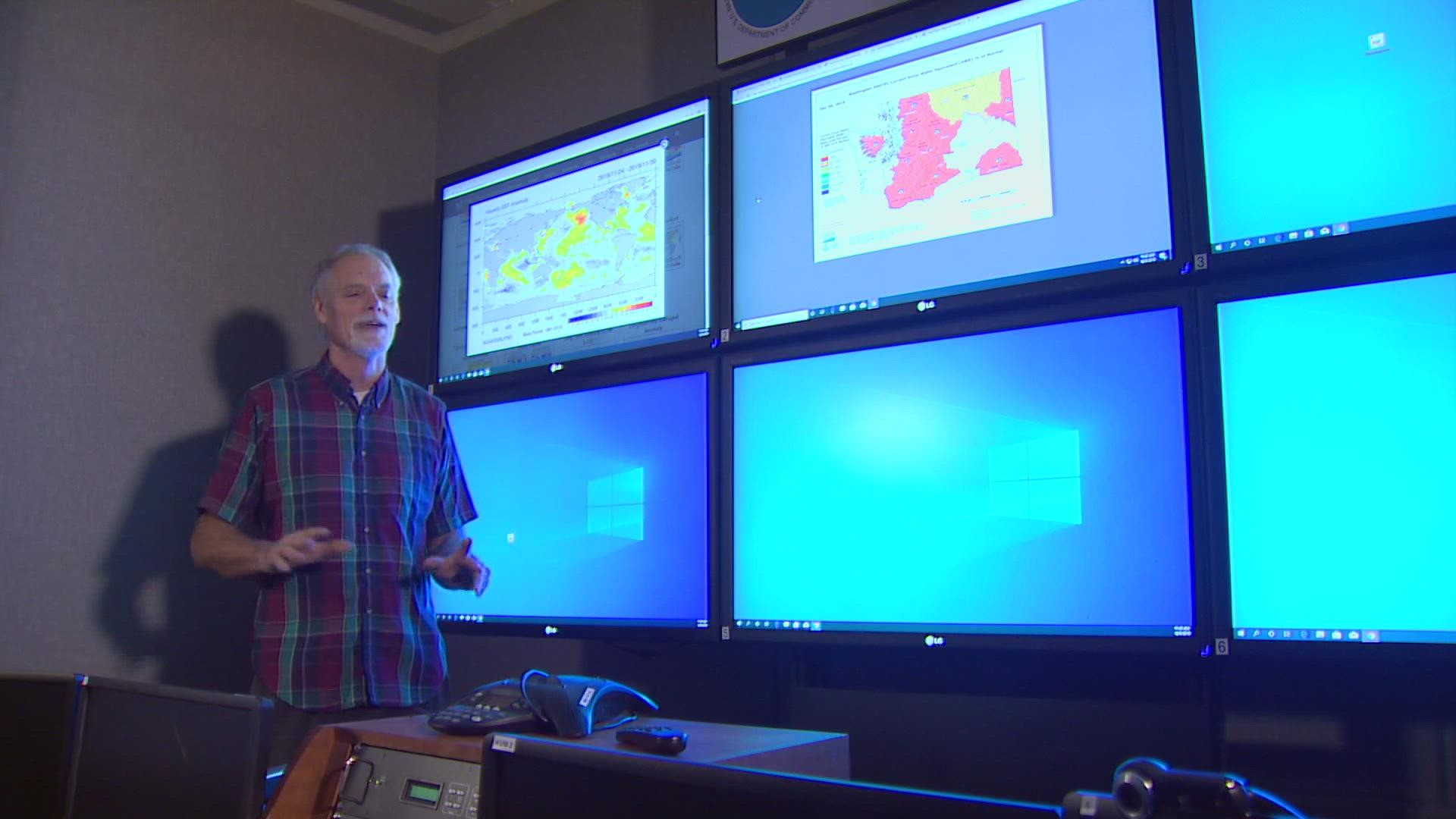SEATTLE — Past marine heat waves, also known as "blobs," have had major impacts on marine life in the Pacific Northwest.
New research published in a report aims to take a step toward better predicting those events and allowing coastal communities to prepare for them.
Michael Jacox and Elliott Hazen, researchers at NOAA Fisheries' Southwest Fisheries Science Center and two of the co-authors on the report, said previous research looked at forecasts of specific marine heat waves, but a comprehensive or global assessment had not been done.
"I think the high-level question is: can we predict marine heat waves? How well can we do it and how far in advance can we do it, and can we support decision-making with these kind of predictions?" Jacox said. "In a lot of cases, we can predict marine heat waves, and at times we can predict them months in advance with pretty high confidence. There are big differences across the globe in how well we can produce them, but there are areas along the US West Coast, in the Pacific Northwest, where the accuracy of these forecasts can actually be quite high, where we can predict marine heat waves far in advance, six months in advance in some cases."
To do so, researchers used global climate models that included ocean temperatures. Hazen said it provides a way to try to understand how atmospheric changes are likely to affect ocean ecosystems.
"This sets the stage for us to be able to respond to marine heat waves that are coming before they arrive and I'm really excited both because it allows for economic savings but also health and human environment savings if we can predict these things before they arrive," Hazen said.
State Climatologist Nick Bond, a researcher and professor at the University of Washington, has explored the impacts of past heat waves.
"Certainly, the blob back in 2014, 2016 had profound impacts on our coastal communities; there's a whole host of things. One of the most notable ones is harmful algal blooms," he said. "There was an unprecedented harmful algal bloom in terms of geographic extension and severity that closed down both commercial shellfish harvest and the recreational harvest. For a long time, people couldn't go out and get razor clams, and it was a big deal for the tourist economy and fisheries. Dungeness crab is one of our biggest fisheries in terms of dollar amount being brought in and when that was closed in 2015, it had a big impact."
Bond said the heat waves impact the whole ocean ecosystem, essentially from the bottom up.
"It impacts the plankton out there, in particular the zooplankton - the little bugs that are such a key part of the food chain," Bond said. "So, when there's warmer water there's zooplankton that are small, don't have a lot of calories, just not very nutritious for the smaller fish and some of the marine mammals.
"So, when that occurs, there's impacts all up the food chain ... especially for juvenile salmon."
Bond said juvenile salmon need solid nutrition, especially for the first few months at sea, if they are to survive.
Though Bond said it's unlikely that scientists will be able to fully forecast marine heat wave seasons ahead of time with precise accuracy in the immediate future, he's hopeful the research will start the process and take steps toward more knowledge.

